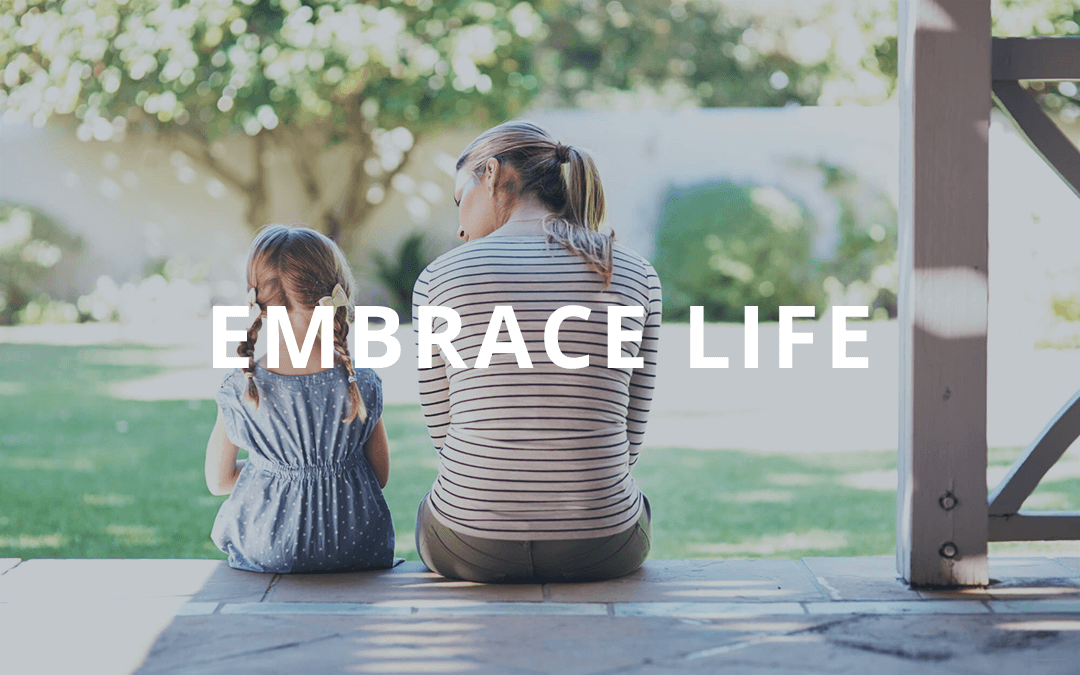MAKING IT THROUGH THE STAGES OF LIFE
We all go through changes in life. From infancy to childhood, preteen to teen, adult to senior. Change is not always easy. Look at the awkward teenager trying to find their way through the maze of hormones and independence. If you have a teenager, remember when they were toddlers? The Terrible Twos? They were testing their independence back then too, with “me do it”, and we were so proud. But when that toddler isn’t taught to tell themselves “No’ when they want a toy or candy at the grocery check out line, then they likely will be a teenager that has a difficult time saying “No” to themselves when it comes to drugs, sex, or alcohol. Frequently, parents think their sweet baby should have whatever they want, but is that healthy for them?
Learning to control our urges starts at an early age and continues throughout each stage of life. It is critical to the outcome of the next stage of life. Grant it, not all alcoholics were once undisciplined toddlers, but they are still searching for a way to satisfy unmet needs. Our greatest need is for love and acceptance. When we feel rejected, even by our own selves, we seek to find acceptance and love from an outside source.
Well-known psychoanalyst, Erik Erickson, says we have eight stages of social development from birth to the end of life. According to Erickson, the stages of social development start with 1) Trust vs. Mistrust during infancy, where hope is developed, 2) Autonomy vs. Shame and Doubt as toddlers learn independence, and 3) Initiative vs. Guilt of children three to six-years-old where they develop a sense of competence and ability. However, if children accomplish their goals but then meet with resistance, they can experience guilt. And a load of guilt can lead to a lack of self-confidence. From six to eleven, children learn 4) Industry vs. Inferiority as they learn to contribute to society with productivity and morality. During adolescence, kids deal with 5) Identity vs. Role Confusion. As they try to figure out who they are and what they believe in, and what they want. They worry how they are perceived and if they fit in with peers.
Erickson’s stages of social development move into young adults who battle 6) Intimacy vs. Isolation. People who have learned to have genuine connections can establish intimacy. But those who have been unable to establish relationships could experience isolation. During mid-life, Erickson states by now people can turn their attention to the next generation, thus Stage 7) Generativity vs. Stagnation. By now, we need to have accepted our position in life and seek to pass on a better life for the next generation. Some people get stuck in a stage, not learning to progress. Picture a sixty-year-old “goth girl”. She is still searching for her identity. But at this stage in her life, looking out for the next generation would be part of a healthy stage for her, even if she doesn’t have grandchildren. Maybe she advocates for the next generation to have a healthy environment or government. Or she uses her experiences to teach youth. Maybe she’s given up and is stagnant in her growth, being satisfied with being a duvet cover.
This brings us to Stage: 8) Integrity (or Contentment) vs. Despair (or Regret) in our last years. Each of our stages affect the health of our next stage. If you are not yet in this stage of development, get busy so you can greet it with satisfaction in life when the time comes. Whatever we do at this late stage, if we have regrets or find ourselves unable to accept and feel satisfied with life, take courage. There is still hope. Begin now to make restitution. Make a difference every day from this day forward.
How about you? What stage in life would you consider yourself? Write and tell us what stages you’ve been through and where you see yourself now. Are you satisfied with the way life is going for you? What can you do about it? If you aren’t happy, do something! There is always something a person can do to find meaning and purpose. Make phone calls, write letters, or cards of encouragement. Recycle, clip coupons for the needy, share or read stories at the library for children or volunteer at your church or the local nursing home. Even a bedbound person can still pray for others. If you develop an “I can do it” attitude, you will find it works.
I think I lost myself in the stage of Initiative and Guilt. I grew up with a lack of confidence, and at times, I still battle that stage in my development. But thank the Lord, my confidence has been in Him and He brings worth and integrity to my life. While in college, I wrote an essay regarding my identity. During the writing of it, I found my Identity in Christ. I realized that being a Christian was who I am and who I had been since middle childhood. Now, I’ve come to the last stage of my life (according to Erickson’s theory), and find myself in a beautiful and satisfying life. I still have regrets, but the satisfaction I have in Christ far outweighs any guilt or regret. He washes all that away with the promise found in I John 1:9: “If we confess our sins, he is faithful and just to forgive us our sins and to cleanse us from all unrighteousness.”
Remember, wherever you are, you are at the right place when you visit my website and read my blog. Come on back and share a slice of life with me.


Plan to share your site with a granddaughter who just lost a baby.